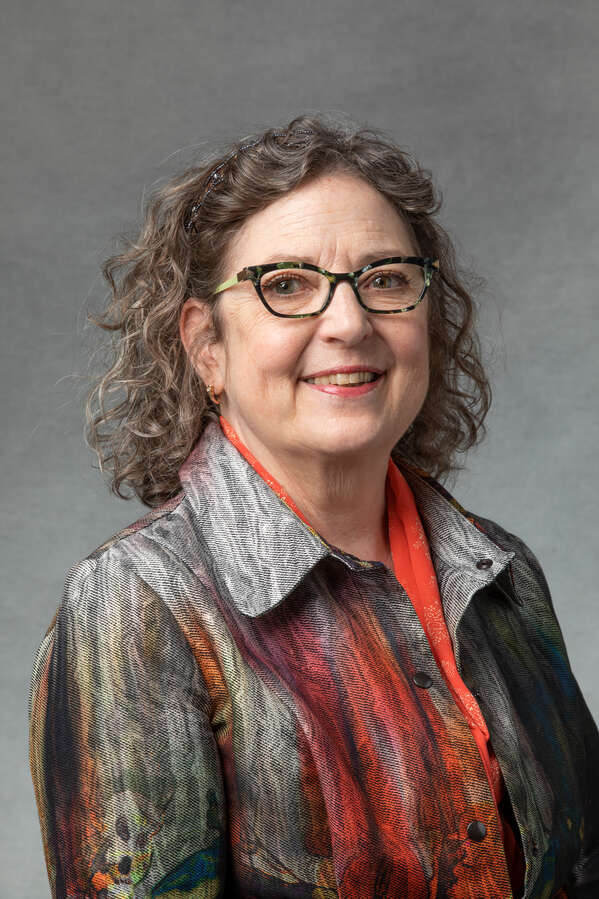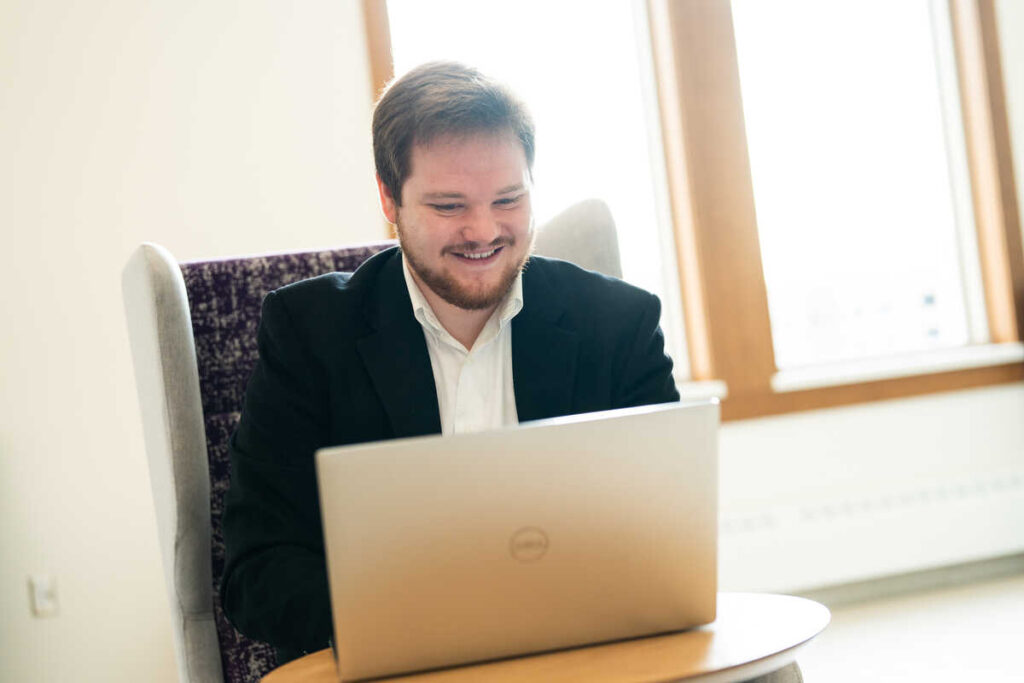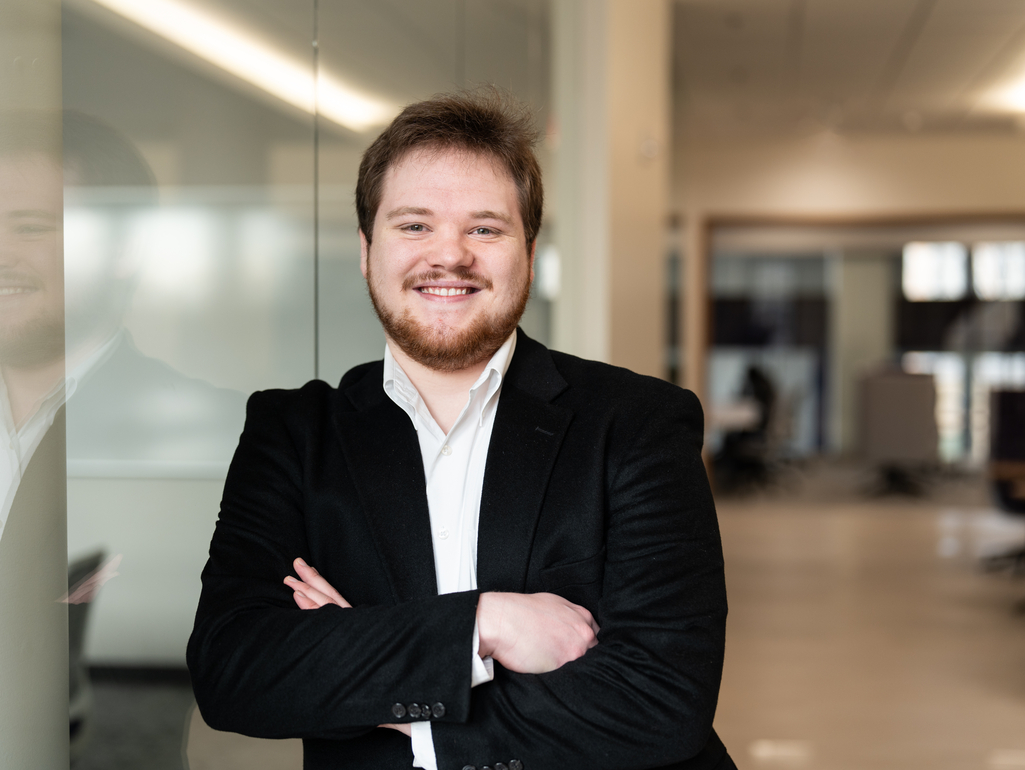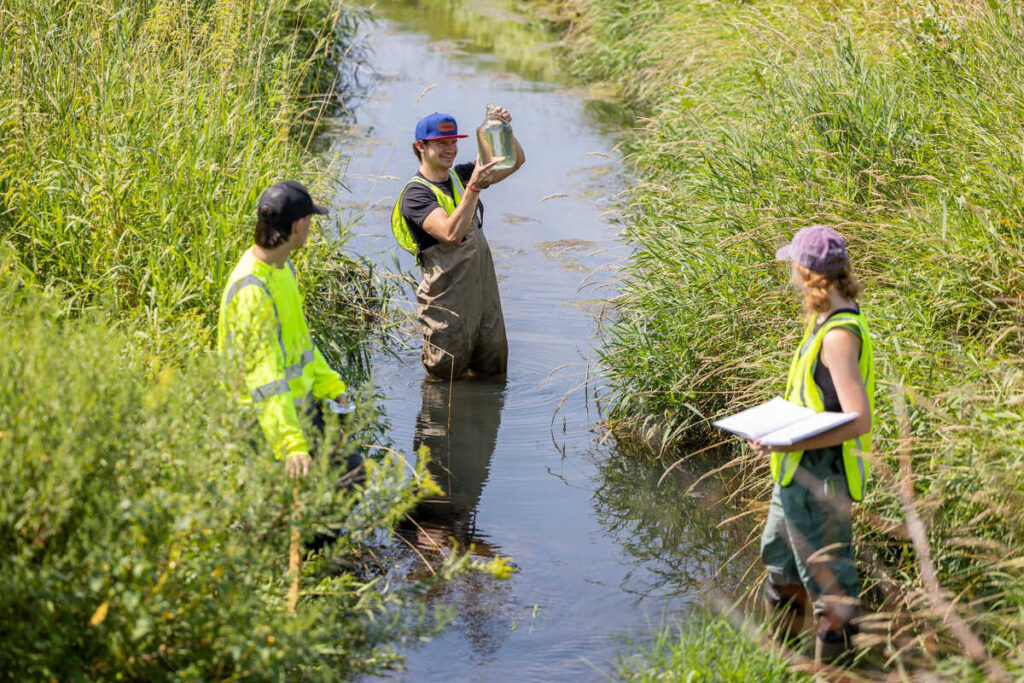Data privacy is a growing concern among organizations. From identity theft to information breach, companies must safeguard clients’ data to maintain their trust and business. Josh Barnhart, a law and compliance major who will graduate from the University of St. Thomas in May 2024, has developed a method for helping businesses with data privacy compliance, including training for artificial intelligence. Challenges within data privacy compliance have and continue to be impactful on all aspects of business, which has been influential on Barnhart and his work.

Barnhart’s idea for the Test of Likeness was born out of his undergraduate research with Professor Susan Marsnik of the Opus College of Business.
The Test of Likeness method helps companies measure the similarity of two given data privacy statutes, or legal requirements, such as policies, procedures, or technical safeguards. “Suppose that two professors assign papers to students, and each paper has its own rubric. The first paper’s rubric mandates that the focus be on animals, whereas the second paper’s rubric mandates that the focus be on a specific animal,” Barnhart said in explaining how the method works.
“Using the Test of Likeness to compare the rubrics, a student identifies that the mandated subjects of both papers overlap. So, the student prioritizes writing a couple paragraphs that can be incorporated into both papers, thus saving time, a student’s most precious resource. Now, instead of professors, think of federal or state governments. Instead of rubrics, think of laws and regulations. Instead of mandated subjects for papers, think of requirements for compliance. And instead of students, think of companies.”
The Test of Likeness method is currently being used by a Twin Cities-based cybersecurity and IT compliance company that Barnhart works for called Highground Cyber. With the support of the company, Barnhart is working to further improve the method with a goal of it eventually being able to measure information for government contractors and subcontractors. The company has recently begun using the Test of Likeness in training artificial intelligence models, because the test can translate unstructured data into structured data, which the AI models prefer. The AI model will eventually become a part of the company’s flagship website, Ridgeline, which is used by its clients as a collaboration hub.
“Ultimately, the Test of Likeness helps compliance professionals effectively allocate their limited resources and maximize their return on investment,” Barnhart said. “This is because they can prioritize compliance with strongly similar statutes, and thus check the most boxes without spending as much.”

Marsnik recognized that he was a gifted student and encouraged him to submit a student paper to the Academy of Legal Studies in Business. That resulted in him being invited to the ALSB conference in San Diego. The two met biweekly in order for Marsnik to support him and work with him on the presentation.
“One of the faculty members judging the oral presentations in San Diego asked each finalist, ‘What contribution does your research make?’” Marsnik said. “I was so proud when Josh simply answered, ‘It works.’ Josh has a solid work ethic and was dedicated to this project, despite having a full course load and work. (His) attention to detail ensured that he was able to describe the laws and use what he had learned to develop his Test of Likeness.”
The legal landscape of IT compliance is hard to understand, and organizations must constantly watch out for statutes and regulations to operate well. While handling these issues may be easy for large organizations, small to mid-sized business do not have that privilege, which is why the Test of Likeness is so powerful.
“I have no doubt that the rigors of his individual research coupled with his attention to regulatory detail and skills with data will serve him well as he faces personal challenges,” Marsnik said. “He is a personable and intelligent young man, and it has been a great pleasure for me to have worked with him.”
Marsnik added that Barnhart often takes a leadership role in team-based exercises, yet also is adept at working alone.
“Throughout the entire process, I learned and refined a myriad of different skills: legal research and reasoning, mathematics, persuasive writing and speaking skills, critical thinking – the list goes on,” Barnhart said. “I constantly use these skills while working at Highground Cyber, and I will continue to use them in perpetuity, no matter where I am or what I’m doing. “







